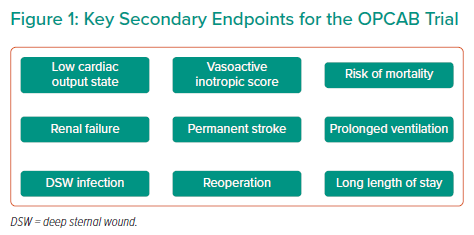Coronary artery bypass graft (CABG) patients are often elderly and have complex disease that requires either surgery or medical therapy. Typically, these patients have high Society of Thoracic Surgeons (STS) risk scores (a calculation that assess a patient’s risk of mortality and morbidities for cardiac surgeries), with moderate mitral regurgitation and borderline renal function. Viability studies do not necessarily provide clarification on the best treatment option, leaving clinicians to navigate through multiple options, including CABG, transplant, left ventricular assist devices (LVAD) or a combination of these. It is known that CABG reduces long-term mortality compared with medical therapy over 10 years, but that the first 30 days come with a 4% mortality rate.1 Thus, therapies should focus on getting through that high-risk, 30-day period.
Dr Joyce and his team have initiated a single-centre prospective observational study examining Impella-supported off-pump CABG in high-risk revascularisations. Enrolment has started with candidate patients who are ≥18 years old, with an ejection fraction of ≤35%, with three-vessel coronary artery disease and with candidate vessel targets evaluated and approved by a surgeon. Enrolled patients will receive an Impella 5.5 prior to undergoing off-pump CAB. The strategy was designed to leverage the benefits of the Impella device for perioperative haemodynamic stability. This prepares the patient for surgery, stabilises them during beating-heart, off-pump revascularisation and prevents the common low output state that presents frequently during the postoperative period. The primary endpoint is intraoperative haemodynamic stability, as determined by a mean arterial pressure >60 mmHg, cardiac index >2 l/min/m2, central venous pressure <15 mmHg and cerebral near-infrared spectroscopy-measured oxygen at >60%. Secondary endpoints encompass factors included in STS risk analysis (Figure 1). Dr Joyce’s trial is currently enrolling, and his team looks forward to sharing the outcomes.










